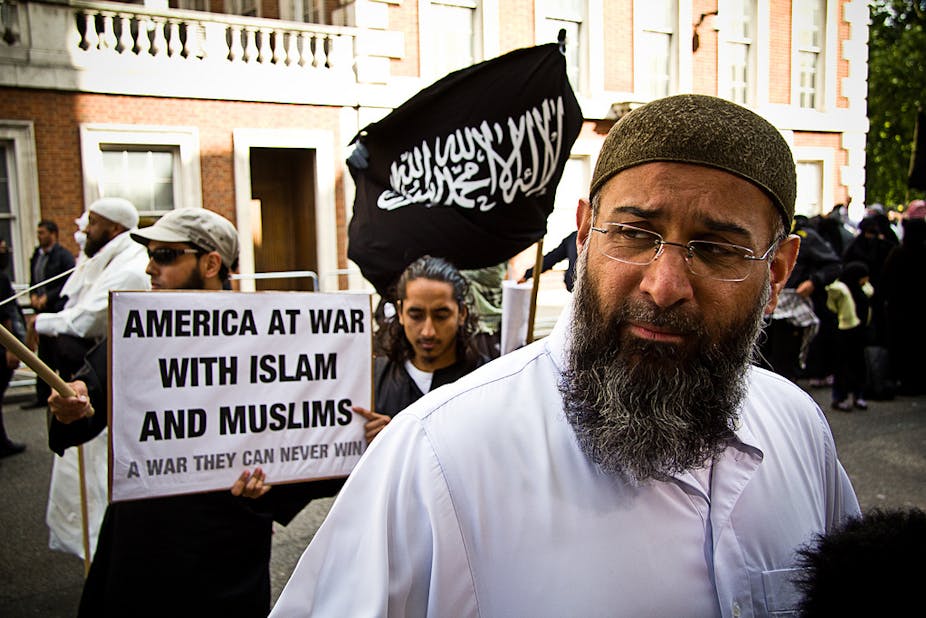The news that Ofcom is investigating whether three interviews with the radical Islamic cleric Anjem Choudary after the Woolwich murder broke the Broadcasting Code has highlighted again the debate about regulation and free speech.
Section 2.3 of the Code says: “In applying generally accepted standards broadcasters must ensure that material which may cause offence is justified by the context.”
Ofcom has always accepted that what appears on television and radio may offend viewers or listeners. Such offence is not a breach of the code in itself. The issue is whether the offence is justified by the context.
BBC Newsnight, ITV Daybreak and Channel Four News all interviewed Choudary on the peg that he knew one of the two men arrested after the murder. They all sought to get him to condemn the murder, which he refused to do. His response would undoubtedly have offended some viewers.
In a series of robust, even repetitive, challenges the interviewers sought to confront this equivocal position on violence. They got nowhere partly because Choudary has perfected the art – undoubtedly learned from some politicians - of only answering the question he asks himself rather than what interviewers ask.
But their right to ask such questions and seek a proper answer will - I suspect - be the broadcaster’s response when they get their chance to respond to Ofcom’s inquiries.
There is, almost inevitably, a political background to all this.
Political pressure
After the murder the culture secretary, Maria Miller, was asked about the interviews on the BBC’s Any Questions radio programme. She said: “Broadcasters are always making tough decisions about how they present the news to us , that’s sort of their job… There is a real balance to be had between fuelling and adding weight to these alleged terrorist incidents and making sure that we know what’s going on and that’s a balance that is always going to have to be struck.”
But a few days later the home secretary, Theresa May, struck a different tone when she said there were “many people who did indeed say: ‘What is the BBC doing interviewing Anjem Choudary?’” After what looked like a briefing from her department, the Daily Mail reported that: “Under plans to be drawn up by a new task force on extremism, Ofcom is expected to win powers to stop hate preachers appearing on television. At the moment the quango has the power to intervene only after an inappropriate broadcast has been made.”
Parallels were drawn with the Thatcher Government’s ban on interviews with supporters of the IRA.
So is the Ofcom investigation into the Choudary interviews a knee-jerk follow-up to this political initiative. I suspect not.
Ofcom’s track record
First of all it is worth noting that when Ofcom publishes its list of current investigations it always includes the sentence: “It is important to note than an investigation by Ofcom does not necessarily mean the broadcaster has done anything wrong.” In fact in some cases Ofcom has concluded its investigation by coming out in support of what the broadcaster has done.
The best example is the Channel Four programme Dispatches; Undercover Mosque transmitted in January 2007 which discovered “an ideology of bigotry and intolerance spreading through Britain with its roots in Saudi Arabia”.
The West Midlands Police followed up and, supported by the Crown Prosecution Service which claimed the editing process had “completely distorted” what speakers were saying, referred the matter to Ofcom as an official complaint.
When Ofcom announced an investigation that might have been interpreted as Ofcom jumping on a bandwagon. But in fact Ofcom found no breach of Section 2.3 of the code saying “any potential offence was justified by the context”. It went further, saying: “Undercover Mosque was a legitimate investigation, uncovering matters of important public interest.”
On the issue of whether Ofcom may “win powers to stop hate preachers”, the broadcasting regulator has a track record of finding against religious channels who give open airtime to extremist preachers to cause offence without justification. A case in point is their adjudication in March against a Sikh channel where “a speaker made comments warmly praising a former leader of a proscribed terrorist organisation, which might be regarded as offensive”.
What Ofcom has not done is to argue for new pre-transmission powers to pre-empt such programmes. It has also not told news organisations that they cannot challenge those who condone politically or religiously inspired violence.
I would be surprised if Ofcom changed its position on either issue.

